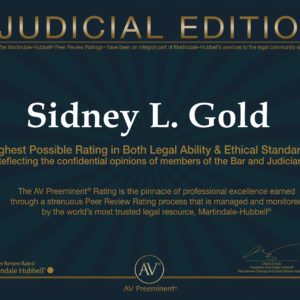How Should Companies Handle Lawsuits?

Businesses hire employees, work with partners, and are open to litigation at any time. It is also possible that a company is sued for a variety of reasons. While it is important to understand the legal implications of the company’s work, the executive or management team must also understand how to avoid preventable legal actions.
When a business is managed properly, it can avoid many legal issues. In addition, the business can create a workflow that protects everyone. Employees deserve to work in a healthy and productive environment. The business should be allowed to operate as normal, and it should be cognizant of situations that could cause workplace problems, be construed as unethical, or simply cast the company in a bad light.
Employers should speak to a Philadelphia employment lawyer as soon as possible if there are questions about how a lawsuit has arisen or can be prevented. Without legal assistance, it is difficult to know how to protect the company and offer employees a safe work environment.
Businesses Sued for Harassment
Businesses can be sued for harassment because of inaction or simply because an employee had the capacity to abuse or harass a coworker or group of employees. Harassment claims most often arise under the following situations:
The company’s human resources department does not take harassment claims seriously. Swift and immediate action is the best policy for any business. The human resources department must take all reports of harassment seriously. A business cannot assume these reports to be untrue. All investigations must be documented in full, even if the reports turn out to be unfounded.

A manager or executive knows of the harassment and tells the victim not to report said harassment. Managers or executives who do not bring harassment to light could be named in these lawsuits or cause legal trouble for the business. For example, a manager or executive who tells a harassment victim to stop complaining gives the employee grounds for a lawsuit. It is much easier for the business to teach all managers and executives to record and report harassment claims. Renewing that training every year also helps the business inform managers or executives of new trends in how harassment should be reported.
The abuser has been allowed to carry on with their harassment for long periods of time, regardless of the complaints against them. If a known abuser has been allowed to remain on the job, despite several harassment complaints, the company is open to liability for all harassment lawsuits brought by victims. Future lawsuits will simply look even worse because the abuser was not terminated when it became clear they created a hostile work environment.
The company allows quid pro quo harassment to continue as part of its normal business activities. A corporation that allows a quid pro quo culture to continue in perpetuity can be sued for sexual harassment at any time. Therefore, swift and immediate action is helpful. When a company learns of confirmed allegations of harassment, that employee should be terminated with cause because they are not likely to halt their pattern of abuse.
Independent contractors are allowed in the building, even though they have been the subject of harassment complaints in the past. If a company allows the harassment to continue, does not report incidents to the contractor’s employer, or tells victims to take it up with the contractor, the company could be named in a harassment lawsuit.
Managers or executives treat their employees with such disdain that all criticism feels like harassment. These situations can easily escalate when the manager expects employees to be available at all hours of the day, calls them constantly after hours, or forces employees to work overtime, even though those employees have other obligations.
What Constitutes Unfair Treatment?
Claims of unfair treatment often occur when a member of a protected class believes that they have been singled out by their manager, an executive, or another employee. Protected classes are those under the New Jersey Law Against Discrimination and/or the federal Civil Rights Act of 1964. Businesses must be aware of all areas where unfair treatment can occur. Unfair treatment or discrimination is disallowed when involving the following groups:
- Sex
- Race
- Pregnancy
- Breastfeeding
- Gender expression
- Sexual orientation
- National origin
- Religion
- Familial status
- Relationship status
- Military service
- Blood traits or genetic information

Unfair treatment can be claimed by anyone, no matter how small the claim may seem to the business. Employees who claim that only men are given promotions may have a valid claim if the business has not carefully managed its diversity programs. The same could be true if an employee claims that only white people are given raises. When these issues predominantly impact a protected class, the business could face a lawsuit.
Complaints of discrimination against pregnant women or those who are breastfeeding are often easy to substantiate. Therefore, the business must accommodate its employees as best it can. Someone who expresses their gender in a unique way should be allowed to do so provided they are professional and perform their job duties. The same is true of those who have a unique sexual orientation. Businesses must judge their employees based on performance. An employment lawyer should be consulted if there are questions about how the company handles its employees or responds to complaints of unfair treatment.
Being Sued for Breach of Contract
Although employment contracts outline job duties, salary, benefits, perks, and the employee’s schedule, these contracts may also outline how intellectual property is managed within the corporation. A business may also have a non-compete agreement and/or confidentiality agreement included with the contract.

Even so, the company must be sure that it abides by the contract. If the company does not pay the employee the appropriate amount, a breach of contract suit could be filed.
A business might expect its employees to abide by a non-compete agreement, but the business cannot try to extend the length or scope of that agreement simply because it wants to do so. The employee could file a lawsuit for breach of contract if they cannot continue working in a new location after abiding by the agreement. In fact, the employee might attempt to have their contract nullified if the business does not abide by every section of that contract. Businesses should work with an employment lawyer to ensure that every contract is written properly and faithfully honored.
Do Companies Pay Overtime Correctly?
Lawsuits concerning overtime pay can be avoided if the business uses a timecard tracking system. There is no reason for employees to guess when clocking their hours, and employees should be paid overtime as prescribed by law. For example, businesses in Pennsylvania are required to pay non-salaried employees 1.5 times their regular rate for every hour worked over 40 hours per week. This rule does not apply to those who work more than eight hours in a day. If the business has questions about tracking hours or who should be paid overtime, it helps to reach out to an employment lawyer for assistance.
Handling a Personal Injury Lawsuit
Personal injury lawsuits on the job occur for a few different reasons. Companies might believe that because they have Workers’ Compensation insurance, everything will be settled by the insurance company. This is not always the case. Employees of the company who are not executives are covered by Workers’ Compensation insurance. This insurance plan is a no-fault system that helps the company avoid liability for these accidents or injuries. The insurance company accepts liability for each claim instead.
Executives, independent contractors, and housekeepers are not eligible for Workers’ Compensation insurance. When an accident occurs while an executive or contractor is on the job, they may file suit against the business for negligence.
Customers, clients, and visitors who are in the company’s facility can file suit against the business for any personal injuries that result because the company did not maintain the facility properly. Businesses should hire a custodial staff who can tend to the building and carry the appropriate insurance for all non-exempt employees.
How can Businesses Defend Against a Wrongful Termination Lawsuit?
Wrongful termination lawsuits are often born out of harassment or discrimination complaints. As mentioned, businesses must be careful when managing their employees. If a manager or executive can wrongfully terminate an employee, the business could be sued. When the business does not have documentation or cause, it may not want to fire an employee immediately.
Why is Documentation Important for Businesses?
Businesses must document everything that they do. When an employee is underperforming, their review should reflect it. The business must document all harassment or discrimination complaints. It could become embarrassing for an executive or lawyer to defend a company when there are undocumented accounts of harassment or discrimination that were witnessed by other people in the office. Each employee should have a personal file. The human resources department should document and investigate all claims of discrimination or harassment, and business decisions should be backed up with documentation. Anything less could cause the company to lose a lawsuit in court.
Should Companies Vet Their Managers More Carefully?
Managers must be vetted as much as possible by the business. Executives or business owners must always do the right thing. While a manager is left in charge of a department or small business, they could cause irreparable harm to the company. For example, a business owner who hires a manager for a new restaurant might rarely visit the restaurant after the manager is hired. The manager could harass employees, wrongfully terminate certain employees, engage in discrimination, and even disallow the reporting of work injuries. Any or all these issues could cause a massive lawsuit against the business. Owners should speak to an employment lawyer if a manager caused damage to the business or invited a lawsuit.
When Should a Company Hire a Lawyer?
Business owners, managers, or executives should hire a lawyer to help with employment contracts. When these contracts and supplemental agreements are written by a legal expert, they are much easier to defend and enforce. A lawyer should be retained when the business suspects that it could be named in a lawsuit for any reason, and a lawyer may also be needed when a manager acted inappropriately, causing the business undue harm or financial hardship.
Philadelphia Employment Lawyers at Sidney L. Gold & Associates, P.C. Assist Businesses Facing Lawsuits
Speak to the Philadelphia employment lawyers at Sidney L. Gold & Associates, P.C. when you have questions about or are facing a lawsuit. For 40 years, we have been at the forefront of change in employment law, helping employers remain in compliance. Call us today at 215-569-1999 or contact us online for a free consultation. Located in Philadelphia and Pennsauken, New Jersey, we serve clients throughout Wilkes-Barre, Scranton, northeast Philadelphia, Bucks County, Chester County, Delaware County, Montgomery County, and South Jersey.































